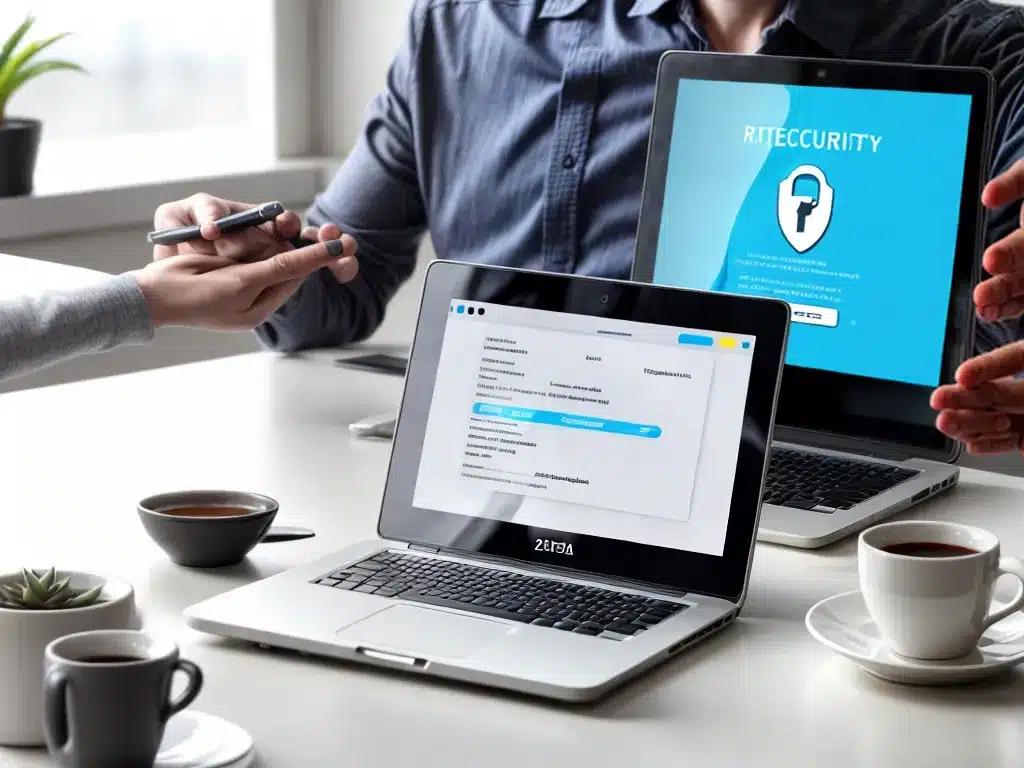
In 2024, data security for remote workers will be more critical than ever before. As more employees work outside of traditional office environments, companies must prioritize protecting sensitive data and systems. Here are the top data security best practices that every remote worker should follow in 2024:
Use a VPN
A Virtual Private Network (VPN) creates a secure tunnel for your internet connection. When you connect through a VPN, your data is encrypted as it travels to and from your device. This prevents hackers from spying on your online activity and stealing data.
-
Make sure to use a reputable VPN provider that offers robust encryption. Look for VPNs that use protocols like OpenVPN or Wireguard.
-
Never access company systems or data without first connecting to your VPN. This includes checking work email, sharing files, and accessing internal tools.
-
Turn on your VPN automatically so you don’t forget this critical step. Most VPN providers have user-friendly apps that connect with a single click.
Keep Software Up-to-Date
Outdated software often has vulnerabilities that cybercriminals can exploit to breach systems and steal data. That’s why it’s crucial to:
-
Enable automatic updates on your devices and company-provided software. This ensures you have the latest security patches.
-
Update VPN software regularly to get important security enhancements. Don’t ignore notifications to upgrade your VPN app or connection protocols.
-
Avoid using unsupported software that no longer receives updates and fixes. This includes older operating systems like Windows 7.
Practice Good Password Hygiene
Your passwords are the keys to your company’s data. With poor password hygiene, an attacker can gain access to your accounts and wreak havoc.
-
Use a unique, complex password for every account. Leverage a password manager to generate and store strong passwords.
-
Never reuse passwords across multiple sites or services. If one account is breached, cybercriminals can access your other accounts using the same credentials.
-
Enable two-factor authentication (2FA) when available. 2FA requires both your password and another verification factor like a code or biometric scan.
Secure Home Networks
Your home Wi-Fi network poses risks if not properly configured. Follow these tips to keep threats off your network:
-
Change default router credentials. Use a strong password to prevent unauthorized access.
-
Encrypt your wireless network. WPA3 is currently the strongest Wi-Fi encryption standard.
-
Avoid public Wi-Fi when working. Only connect to personal, password-protected networks you trust.
-
Use a firewall. A firewall monitors network traffic and blocks suspicious connections.
Be Wary of Phishing Attempts
Cybercriminals use phishing emails and fraudulent websites to steal login credentials and drop malware. Stay vigilant by:
-
Hovering over links to preview destinations before clicking. Avoid clicking from emails.
-
Double checking sender addresses for accuracy. Scammers often spoof legitimate addresses.
-
Using security awareness training to identify phishing attempts. Your company may offer training modules.
-
Deleting suspicious emails instead of engaging. Don’t open attachments or follow links in shady emails.
Secure Mobile Devices
When working remotely, your mobile devices need the same level of security as a desktop computer:
-
Install a mobile VPN to route mobile traffic through an encrypted tunnel. This adds a layer of protection for Wi-Fi connections.
-
Use biometric authentication like fingerprint scans or facial recognition when available. This is more secure than PIN codes.
-
Only install apps from official stores like Apple App Store and Google Play Store. Avoid sideloading apps from third-party sources.
-
Disable unneeded connectivity like Bluetooth, airdrop, or NFC when not in use. Limit your exposure to attacks.
-
Keep mobile devices updated to get the latest patches and security enhancements.
Beware of Shoulder Surfing
Shoulder surfing is when someone physically looks over your shoulder to view sensitive information on your screen. Prevent shoulder surfing by:
-
Facing away from doors/windows when working in public to obstruct views of your screen.
-
Increasing screen privacy filters to block visibility from certain angles.
-
Not working with sensitive data in extremely public places like cafes.
-
Using environmental noise like headphones or background music to prevent eavesdropping.
Secure Your Home Workspace
Your remote workspace should be treated like an extension of the corporate environment:
-
Lock devices when not in use. This prevents unauthorized access if a device is lost or stolen.
-
Shred documents with sensitive data instead of just throwing them away.
-
Follow clean desk policies by locking away portable storage devices, paperwork, etc.
-
Use privacy screens to block shoulder surfing of monitors and laptops.
-
Position your monitor strategically to prevent visibility through windows and open doorways.
Report Suspicious Activity
If you encounter a significant data security issue like a potential breach or malware infection, immediately notify your IT team by:
-
Calling the IT helpdesk to get rapid response. Don’t just send an email.
-
Documenting relevant details like suspicious links clicked or files downloaded. This gives IT information to investigate.
-
Following company protocols for incident response. Read policies so you know exactly what to do.
-
Changing passwords as a precaution once the threat is contained.
Staying secure while working remotely requires more vigilance. But following these best practices will help protect your company’s systems and sensitive data from modern cyber threats. With the right habits and tools, remote workers can maintain the highest data security standards.












